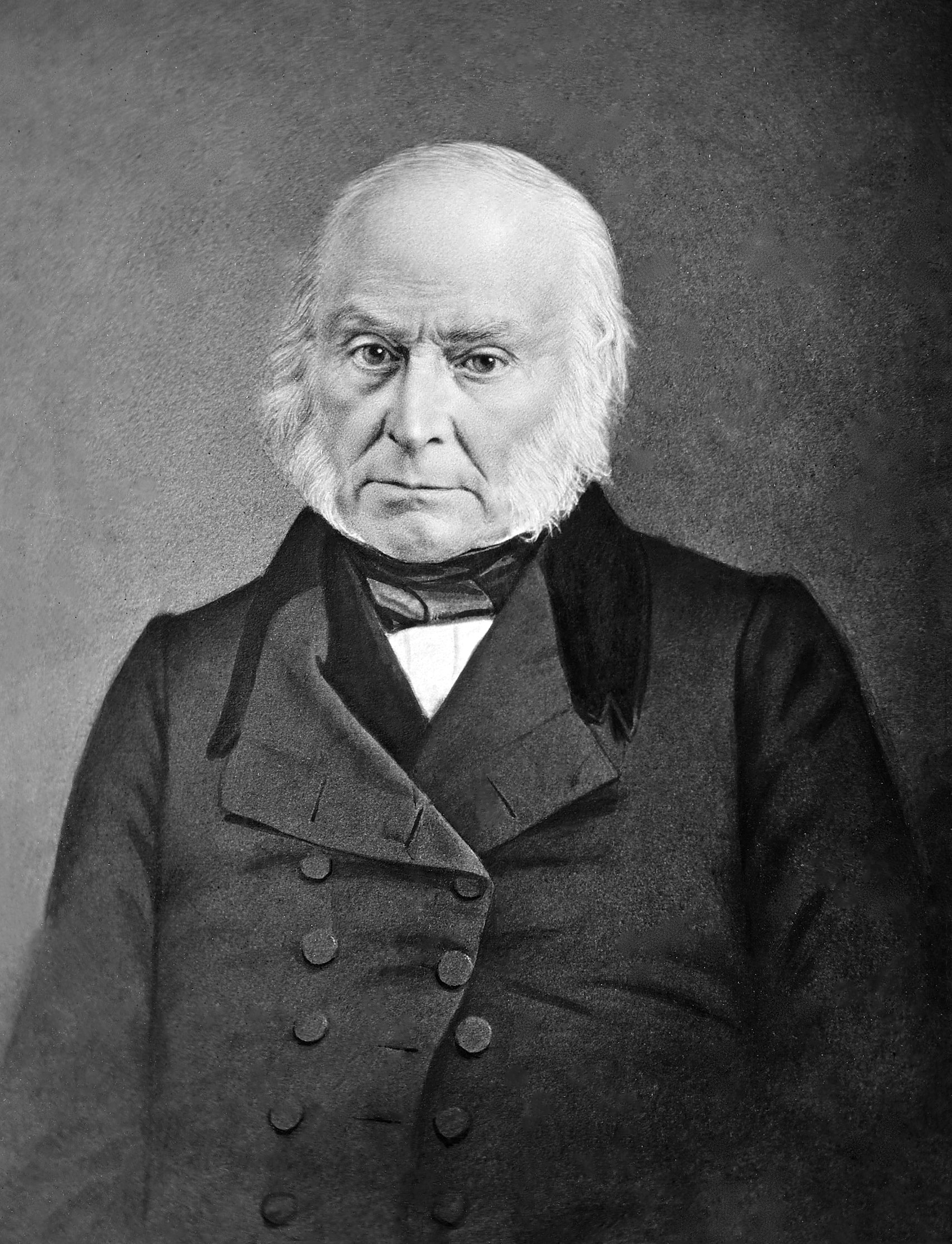„Dies ist der letzte Tag auf Erden, ich bin zufrieden.“
Letzte Worte, 23. Februar 1848. Abgedruckt in: Die politischen Parteien in den Vereinigten Staaten von Amerika mit Rücksicht auf die gegenwärtige politische Parteistellung in Deutschland. Eine politisch-historische Studie von Rudolph Doehn. Verlag Otto Wigand, Leipzig 1868. S. 84
Original engl.: "This is the last of earth; I am composed."
